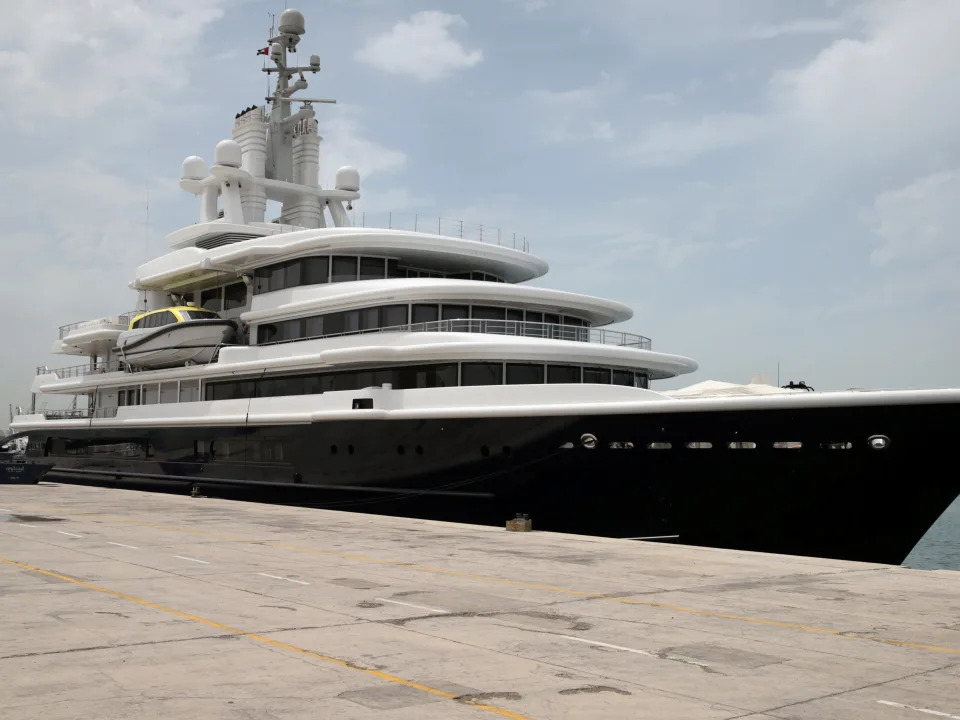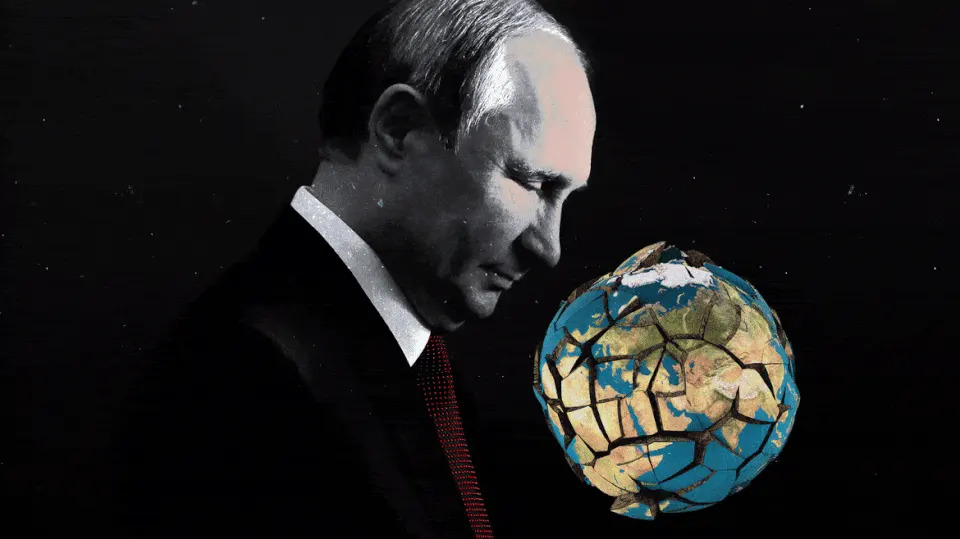Associated Press
Ukrainian drone enthusiasts sign up to repel Russian forces
Matt O’Brien – March 4, 2022

In better times, Ukrainian drone enthusiasts flew their gadgets into the sky to photograph weddings, fertilize soybean fields or race other drones for fun. Now some are risking their lives by forming a volunteer drone force to help their country repel the Russian invasion.
“Kyiv needs you and your drone at this moment of fury!” read a Facebook post late last week from the Ukrainian military, calling for citizens to donate hobby drones and to volunteer as experienced pilots to operate them.
One entrepreneur who runs a retail store selling consumer drones in the capital said its entire stock of some 300 drones made by Chinese company DJI has been dispersed for the cause. Others are working to get more drones across the border from friends and colleagues in Poland and elsewhere in Europe.
“Why are we doing this? We have no other choice. This is our land, our home,” said Denys Sushko, head of operations at Kyiv-based industrial drone technology company DroneUA, which before the war was helping to provide drone services to farmers and energy companies.
Sushko fled his home late last week after his family had to take cover from a nearby explosion. He spoke to The Associated Press by phone and text message Friday after climbing up a tree for better reception.
“We try to use absolutely everything that can help protect our country and drones are a great tool for getting real-time data,” said Sushko, who doesn’t have a drone with him but is providing expertise. “Now in Ukraine no one remains indifferent. Everyone does what they can.”
Unlike the much larger Turkish-built combat drones that Ukraine has in its arsenal, off-the-shelf consumer drones aren’t much use as weapons — but they can be powerful reconnaissance tools. Civilians have been using the aerial cameras to track Russian convoys and then relay the images and GPS coordinates to Ukrainian troops. Some of the machines have night vision and heat sensors.
But there’s a downside: DJI, the leading provider of consumer drones in Ukraine and around the world, provides a tool that can easily pinpoint the location of an inexperienced drone operator, and no one really knows what the Chinese firm or its customers might do with that data. That makes some volunteers uneasy. DJI declined to discuss specifics about how it has responded to the war.
Taras Troiak, a dealer of DJI drones who started the Kyiv retail store, said DJI has been sending mixed signals about whether it’s providing preferential access to — or disabling — its drone detection platform AeroScope, which both sides of the conflict can potentially use to monitor the other’s flight paths and the communication links between a drone and the device that’s controlling it.
DJI spokesperson Adam Lisberg said wartime uses were “never anticipated” when the company created AeroScope to give policing and aviation authorities — including clients in both Russia and Ukraine — a window into detecting drones flying in their immediate airspace. He said some users in Ukraine have reported technical problems but DJI has not disabled the tool or given preferential access.
In the meantime, Ukrainian drone experts said they’ve been doing whatever they can to teach operators how to protect their whereabouts.
“There are a number of tricks that allow you to increase the level of security when using them,” Sushko said.
Sushko said many in the industry are now trying to get more small drones — including DJI alternatives — transported into Ukraine from neighboring European countries. They can also be used to assist search-and-rescue operations.
Ukraine has a thriving community of drone experts, some of whom were educated at the National Aviation University or the nearby Kyiv Polytechnic University and went on to found local drone and robotics startups.
“They’ve got this homebuilt industry and all these smart people who build drones,” said Faine Greenwood, a U.S.-based consultant on drones for civic uses such as disaster response.
Troiak’s DJI-branded store in Kyiv, which is now shuttered as city residents take shelter, was a hub for that community because it runs a maintenance center and hosts training sessions and a hobby club. Even the country’s president, Volodymyr Zelenskyy, once paid a visit to the store to buy a drone for one of his children, Troiak said.
A public drone-focused Facebook group administered by Troiak counts more than 15,000 members who have been trading tips about how to assist Ukrainian troops. One drone photographer who belongs to the Ukrainian Association of Drone Racing team told The Associated Press he decided to donate his DJI Mavic drone to the military rather than try to fly it himself. He and others asked not to be named out of fear for their safety.
“The risk to civilian drone operators inside Ukraine is still great,” said Australian drone security expert Mike Monnik. “Locating the operator’s location could result in directed missile fire, given what we’ve seen in the fighting so far. It’s no longer rules of engagement as we have had in previous conflicts.” In recent days, Russian-language channels on the messaging app Telegram have featured discussions on ways to find Ukrainian drones, Monnik said.
Some in Ukraine’s drone community already have experience deploying their expertise in conflict zones because of the country’s long-running conflict with Russian-backed separatists in eastern Ukraine. Monnik’s firm, DroneSec, has tracked multiple instances just in the past year of both sides of that conflict arming small drones with explosives. One thing that Ukrainians said they’ve learned is that small quadcopter drones, such as those sold at stores, are rarely effective at hitting a target with explosive payloads.
“It would seem somewhat short-sighted to waste one,” said Greenwood, the consultant based in Cambridge, Massachusetts. “I assume the chief goal would be recon. But if things are getting desperate, who knows.”
DJI also has experience in responding to warfighters trying to weaponize its drones and used so-called “geofencing” technology to block drone movements during conflicts in Syria and Iraq. It’s not clear yet if it will do the same in Ukraine; even if it does, there are ways to work around it.
Small civilian drones are no match against Russian combat power but will likely become increasingly important in a protracted war, leaving drone-makers no option to be completely neutral. Any action they take or avoid is “indirectly taking a side,” said P.W. Singer, a New America fellow who wrote a book about war robots.
“We will see ad-hoc arming of these small civilian drones much the way we’ve seen that done in conflicts around the world from Syria to Iraq and Yemen and Afghanistan,” Singer said. “Just like an IED or a Molotov cocktail, they won’t change the tide of battle but they will definitely make it difficult for Russian soldiers.”
——
AP video journalist Nathan Ellgren contributed to this report.







